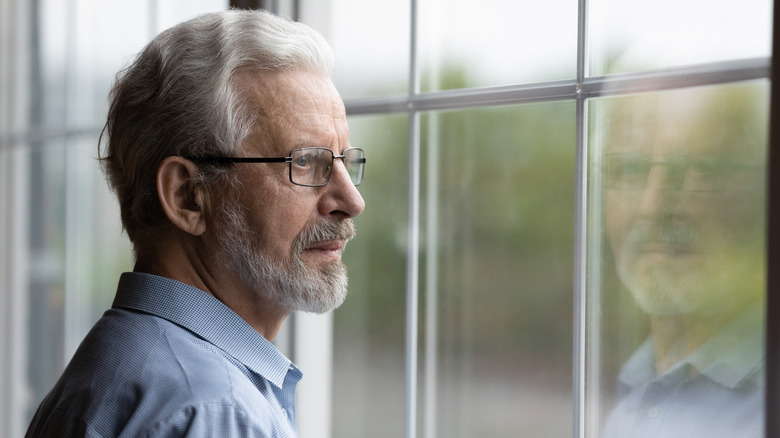Why Life Post-COVID Might Be More Of A Struggle For Seniors
Over the past 2 years, the COVID-19 pandemic has changed so many aspects of our lives. From the way we work, attend school, or enjoy a meal from our favorite restaurant, many of us learned to adapt to a "new normal." With the rapid decline of COVID-19 cases, many have started to return to their pre-pandemic way of life. Some have begun to attend events, shop at stores, and dine at restaurants without wearing masks or social distancing. According to the University of Minnesota Center for Infectious Disease Research and Policy (CIDRAP), COVID-19 cases have dropped drastically in the United States since the Omicron variant surge.
Even with COVID numbers on the decline, not everyone is prepared to return to life as it once was. "There's a terrible fear that I'll never get back my normal life," John Coffino, a 78-year-old, told Kaiser Health News (KHN). According to Healthline, senior citizens have developed unique emotional challenges due to the COVID-19 pandemic that may interfere with their return to daily life.
A slow return to life can help seniors
During the pandemic, many seniors experienced a whirlwind of emotions. Although the COVID pandemic has caused uncertainty for many, it has been more difficult for seniors approaching their final years of life. Many feel that they have wasted time and forfeited memories that they can never get back. Even with the drop in COVID-19 cases, many seniors are apprehensive about returning to social settings due to the risk of getting sick (via Healthline). "I've never seen so many people who say they're hopeless and have nothing to look forward to," Henry Kimmel, a clinical psychologist, told KHN.
However, there is hope for seniors to return to a life that they can enjoy post-COVID. "As with all transitions, moving into a post-pandemic lifestyle will take some time to adapt," Dr. Michael G. Wetter, Director of UCLA Medical Center, told Healthline. "I believe it's best for people to begin to introduce socialization slowly, at a pace with which they feel comfortable, Kimmel added. "So, maybe instead of going to a crowded place like a theme park or concert venue, they start with going to a local restaurant or even movie theater."


